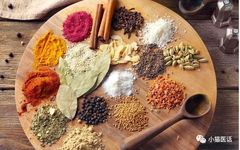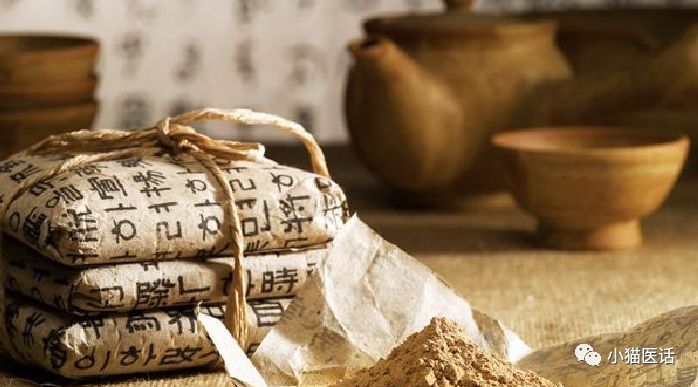
With the continuous development of clinical medicine, the understanding of Qi disorders has gradually deepened, and has become more systematic. Currently, it is believed that Qi disorders can generally be summarized into three categories: Qi deficiency, Qi stagnation, and Qi reversal:
(1) Qi Deficiency
“ When essence and Qi are depleted, deficiency occurs.” This refers to a condition where the function of the whole body or a specific organ is reduced, commonly seen in chronic patients, the elderly, during recovery from acute illness, after blood loss, postpartum, or post-surgery. Clinically, the main manifestations include shortness of breath, weak voice when speaking, fatigue and weakness, spontaneous sweating, poor appetite, constipation, pale complexion, pale tongue with thin white coating, and weak pulse. Heart Qi deficiency leads to palpitations, shortness of breath; lung Qi deficiency results in weak breathing, spleen and stomach Qi deficiency causes indigestion, poor appetite, abdominal distension, nausea and vomiting, and loose stools; kidney Qi deficiency leads to nocturnal emissions and incontinence; deficiency of defensive Qi results in spontaneous sweating and susceptibility to external pathogens; gallbladder Qi deficiency leads to timidity and easy fright.
If the middle Qi sinks, it can lead to thin stools, chronic diarrhea ( dysentery ) that does not stop, rectal bleeding that does not stop, prolonged menstruation, lower abdominal heaviness or prolapse of the rectum, uterine prolapse, and persistent leukorrhea, kidney prolapse, and gastric prolapse. If the Qi in the chest sinks, it can lead to shortness of breath that is insufficient for breathing, or difficulty in breathing, which may seem like wheezing, or the breath may stop, indicating a critical condition.
(2) Qi Stagnation
When Qi and blood flow harmoniously, no diseases arise; when there is stagnation, all diseases arise. Stagnation occurs when Qi should rise but does not, when it should descend but does not, and when it should transform but cannot. If the heart is stagnant, it leads to confusion and forgetfulness; if the liver is stagnant, it causes fullness in the flanks and warmth in the Qi; if the spleen is stagnant, it leads to fullness and lack of appetite; if the lung is stagnant, it results in dry cough without phlegm; if the kidney is stagnant, it causes lower back fullness and turbid urination, and inability to stand for long periods; if the gallbladder is stagnant, it leads to bitter mouth and heat in the breast, and restlessness.
Qi that should descend but does not can cause disease. The Suwen, Chapter on the Five Qi, states: “ The stomach Qi that reverses leads to belching and fear.” Zhang Jingyue said: “ All causes of obstruction are due to Qi reversal.” The Three Character Classic of Medicine, Chapter on Cough, states: “ The lung is the master of Qi, and when Qi reverses in the lung, it leads to coughing.” When stomach Qi reverses, it causes nausea and vomiting; when lung Qi reverses, it leads to coughing and wheezing; when liver Qi reverses, it causes rebellious Qi.
(3) Treatment Methods and Formulas for Qi Disorders include Qi deficiency, Qi stagnation, and Qi reversal. In treatment, Qi deficiency should be tonified, Qi stagnation should be moved, and Qi reversal should be descended. Qi deficiency can be further classified into heart Qi deficiency, lung Qi deficiency, spleen Qi deficiency, kidney Qi deficiency, dual deficiency of Qi and blood, Qi failing to control blood, Qi deficiency with phlegm, and sinking of middle Qi, thus the methods for tonifying Qi include methods for tonifying heart Qi, lung Qi, spleen Qi, kidney Qi, tonifying Qi and nourishing blood, tonifying Qi and controlling blood, tonifying Qi and invigorating blood, and tonifying Qi and raising Yang, etc. Qi stagnation can be classified into spleen and stomach Qi stagnation, liver Qi stagnation, blood stasis due to Qi stagnation, water retention due to Qi stagnation, and phlegm Qi stagnation, thus methods for moving Qi include invigorating blood and moving Qi, promoting water metabolism and moving Qi, and transforming phlegm and moving Qi. Qi reversal can be classified into stomach Qi reversal and lung Qi reversal, thus methods for descending Qi include descending lung Qi, descending stomach Qi, and descending liver Qi.
Next, we will introduce each method separately:
(1) Methods for Tonifying Qi
1. The method for tonifying lung Qi uses herbs that primarily tonify lung Qi, to treat lung Qi deficiency caused by excessive labor or prolonged coughing. Formulas such as Bupai Tang (Lung Tonifying Decoction), Shengmai San (Generate the Pulse Powder). Common herbs include Ren Shen (Ginseng), Dang Shen (Codonopsis), Huang Qi (Astragalus), Zhi Gan Cao (Honey-fried Licorice), Ge Jie (Gecko), Dong Chong Xia Cao (Cordyceps), etc.
2. The method for tonifying heart Qi uses herbs that primarily tonify heart Qi, to treat heart Qi deficiency caused by excessive worry and overthinking. Formulas such as Yang Xin Tang (Nourish the Heart Decoction), Zhi Gan Cao Tang (Honey-fried Licorice Decoction). Common herbs include Huang Qi (Astragalus), Dang Shen (Codonopsis), Fu Ling (Poria), Gan Cao (Licorice), and in severe cases, Ren Shen (Ginseng).
3. The method for tonifying spleen Qi uses herbs that primarily tonify Qi and strengthen the spleen, to treat conditions of insufficient middle Qi due to Qi deficiency or prolonged illness damaging spleen and stomach Qi. The Si Jun Zi Tang (Four Gentlemen Decoction) is a representative formula, and others like Liujunzi Tang (Six Gentlemen Decoction), Xiangsha Liujunzi Tang (Aromatic and Digestive Six Gentlemen Decoction), Ren Shen Bai Zhu San (Ginseng and Atractylodes Powder) are variations based on this formula. Common herbs include Huang Qi (Astragalus), Ren Shen (Ginseng), Dang Shen (Codonopsis), Bai Zhu (White Atractylodes), Fu Ling (Poria), Yi Yi Ren (Job’s Tears), Bai Bian Dou (White Hyacinth Bean), Zhi Gan Cao (Honey-fried Licorice), Da Zao (Jujube), etc.
4. The method for tonifying kidney Qi uses herbs that primarily stabilize and tonify kidney Qi, to treat kidney Qi deficiency due to prolonged illness, kidney Qi depletion, or overwork damaging the kidney, leading to conditions of kidney Qi not being able to secure and store. Suo Quan Wan (Constrict the Urine Pill) and Jin Suo Guo Jing Wan (Golden Lock Pill) are representative formulas for kidney Qi deficiency, and common herbs include Yi Zhi Ren (Alpinia), Sang Piao Xiao (Mantis Egg Case), Fu Pen Zi (Raspberry), Qian Shi (Euryale Seed), etc.; for kidney not securing Qi, the representative formula is Ren Shen Hu Tao Tang (Ginseng and Walnut Decoction), with common herbs including Hu Tao (Walnut), Ge Jie (Gecko), Bu Guo Zhi (Psoralea), etc.
5. The method for tonifying Qi and nourishing blood combines Qi tonifying herbs with blood nourishing herbs to treat conditions of dual deficiency of Qi and blood due to post-illness imbalance, prolonged illness, or excessive blood loss. The representative formula is Ba Zhen Tang (Eight Treasure Decoction). Common blood nourishing herbs include Dang Gui (Angelica), Shu Di Huang (Rehmannia), Ejiao (Donkey-hide Gel), Bai Shao (White Peony), He Shou Wu (Fo-Ti), Gou Qi Zi (Goji Berry), etc. There is also a method for tonifying Qi and generating blood, which emphasizes the use of Qi tonifying herbs to generate blood, treating dual deficiency of Qi and blood. Since physical blood cannot be quickly generated, it requires the warmth of Yang Qi, which is the principle of “Yang generates Yin.” Formulas such as Dang Gui Bu Xue Tang (Angelica Blood Tonifying Decoction) emphasize the use of Huang Qi (Astragalus) to tonify Qi to generate blood, as Qi strengthens, blood flourishes.
6. The method for tonifying Qi and controlling blood primarily uses spleen Qi tonifying herbs to benefit Qi and control blood, treating conditions where the spleen fails to control blood. Formulas such as Gui Pi Tang (Restore the Spleen Decoction) and Ju Yuan Jian (Raise the Yuan Decoction).
7. The method for tonifying Qi and invigorating blood combines Qi tonifying herbs with blood invigorating herbs to treat conditions of blood stasis due to insufficient Yang Qi. A typical formula is Bupai Huan Wu Tang (Tonify Yang and Restore Five Decoction), emphasizing the use of Huang Qi (Astragalus) with added blood invigorating herbs.
8. The method for tonifying Qi and raising Yang is divided into methods for raising middle Qi and raising ancestral Qi. The method for raising middle Qi uses Qi tonifying and spleen strengthening herbs along with Yang raising herbs to treat conditions of Qi deficiency and sinking. Formulas such as Buzhong Yiqi Tang (Tonify the Middle and Augment Qi Decoction), Sheng Yang Yigei Tang (Raise Yang and Benefit the Stomach Decoction), Bupai Wei Xia Yin Huo Sheng Yang Tang (Tonify Spleen and Stomach, Drain Yin Fire and Raise Yang Decoction) are examples. The method for raising ancestral Qi uses herbs that raise Qi and tonify Qi to treat conditions of sinking Qi in the chest, with Sheng Han Tang (Raise the Sinking Decoction) as a representative formula. Common herbs for tonifying Qi and raising Yang include Huang Qi (Astragalus), Sheng Ma (Cimicifuga), Chai Hu (Bupleurum), etc.

Tonifying Qi
(2) Methods for Moving Qi
1. The method for moving Qi and guiding stagnation uses herbs that primarily move Qi and guide stagnation to treat conditions of spleen and stomach Qi stagnation or intestinal accumulation or Qi stagnation with phlegm. Formulas such as Hou Po Wen Zhong Tang (Magnolia Bark Warm the Middle Decoction), Mu Xiang Bing Lang Wan (Aromatic and Digestive Betel Nut Pill), Fu Fang Da Cheng Qi Tang (Combined Major Order the Qi Decoction), Nian Lian Huan Jie Tang (Adhesion Relief Decoction), etc. Common herbs include Chen Pi (Aged Tangerine Peel), Fu Pi (Abdominal Skin), Sha Ren (Amomum), Ji Shi (Accumulation), Hou Po (Magnolia Bark), Mu Xiang (Aucklandia), Bing Lang (Betel Nut), etc.
2. The method for soothing the liver and regulating Qi uses herbs that primarily soothe the liver and regulate Qi to treat conditions of liver Qi stagnation due to emotional distress, anger, and inability to vent. Formulas such as Chai Hu Shu Gan San (Bupleurum Soothing the Liver Powder), Xiao Yao San (Free and Easy Wanderer Powder), Si Ni San (Frigid Extremities Powder). Common herbs include Chai Hu (Bupleurum), Xiang Fu (Cyperus), Yu Jin (Curcuma), Qing Pi (Green Tangerine Peel), Chuan Dong Zi (Sichuan Pepper), Yuan Hu (Corydalis), Bai Shao (White Peony), etc.
3. The method for moving Qi and invigorating blood combines Qi moving herbs with blood invigorating herbs to treat conditions where Qi stagnation and blood disorders coexist. Formulas such as Jin Ling Zi San (Golden Bell Flower Powder), Wu Yao Tang (Lindera Powder), Dan Shen Yin (Salvia Decoction), etc. Common herbs include Chuan Xiong (Ligusticum), Xiang Fu (Cyperus), Yu Jin (Curcuma), Yuan Hu (Corydalis), Jiang Huang (Turmeric), San Ling (Bupleurum), E Zhu (Curcuma), etc.
4. The method for moving Qi and promoting water metabolism combines Qi moving herbs with diuretic herbs to treat conditions of edema and Qi stagnation. For example, the formula Wu Pi Yin (Five Peels Decoction) is a typical representative for treating edema due to spleen deficiency and water retention due to Qi stagnation. Chen Pi (Aged Tangerine Peel) and Fu Pi (Abdominal Skin) are both Qi moving and diuretic herbs, combined with other spleen strengthening herbs to relieve the condition of water retention due to Qi stagnation.
5. The method for moving Qi and transforming phlegm combines Qi moving and phlegm resolving herbs to treat conditions of phlegm and Qi stagnation due to Qi mechanism obstruction and abnormal descent of spleen and stomach, leading to phlegm accumulation. Formulas such as Ban Xia Hou Po Tang (Pinellia and Magnolia Decoction) and Gua Lou Hong Bai Jiu Tang (Trichosanthes and White Wine Decoction) are representative formulas for treating conditions of phlegm obstructing Qi and causing chest tightness.
(3) Methods for Descending Qi
1. The method for descending lung Qi uses herbs that primarily descend Qi and relieve wheezing to treat conditions of lung Qi reversal leading to wheezing and coughing. Due to the many causes of lung Qi reversal, clinical manifestations can vary widely, and there are almost no specific formulas for descending lung Qi. Common representative formulas for treating phlegm obstructing the lung, lung Qi not descending, and kidney not securing Qi include Su Zi Jiang Qi Tang (Perilla Seed Decoction) and Ding Chuan Tang (Calm Wheezing Decoction) for treating wind-cold obstructing the lung and phlegm-heat causing wheezing. Common herbs for descending lung Qi include Su Zi (Perilla Seed), Lai Fu Zi (Radish Seed), Ting Li Zi (Descurainia), Xing Ren (Apricot Kernel), etc.
2. The method for descending stomach Qi uses herbs that primarily descend stomach Qi to treat conditions of stomach Qi reversal. Stomach Qi reversal can be classified into cold and heat, deficiency and excess, thus treatment principles vary. For example, for cold stomach causing vomiting, it is advisable to use Mo Yu (Morus), Ding Xiang (Clove) and other warming herbs along with Ginger and Cinnamon; for heat conditions causing vomiting, it is advisable to use Bamboo Shavings, Zhi Shi (Bitter Orange) and other heat-clearing herbs along with Qin Pi (Fried Orange Peel) and Lian Qiao (Forsythia); for deficiency conditions, it is advisable to combine with Ren Shen (Ginseng) and Gan Cao (Licorice); for vomiting due to phlegm-damp obstructing the stomach, it is necessary to use Ban Xia (Pinellia) and Sheng Jiang (Fresh Ginger) as the main herbs to resolve phlegm and descend Qi. Common formulas include Jiao Pi Zhu Yu Tang (Tangerine Peel and Bamboo Shavings Decoction), Ding Xiang Shi Di Tang (Clove and Persimmon Calyx Decoction), Xuan Fu Dai Zhi Tang (Inula and Zhi Shi Decoction), Xiao Ban Xia Tang (Minor Pinellia Decoction), etc.
3. The method for descending liver Qi uses Qi moving and descending herbs to treat conditions of liver Qi rising. The representative formula is Ben Tun Tang (Rebellious Qi Decoction), which treats conditions caused by emotional distress leading to liver Qi stagnation and heat rising, with symptoms that are paroxysmal. As stated in the Jin Bian Yao Lue: “Rebellious Qi disease arises from the lower abdomen, rising to the throat, causing wheezing and death, and then stopping, all due to fright.” The formula includes Li Gen Bai Pi (White Skin of Li Root) as the main herb to descend Qi, and Ban Xia (Pinellia) and Sheng Jiang (Fresh Ginger) to specifically descend Qi, along with Bai Shao (White Peony), Dang Gui (Angelica), and Chuan Shao (Ligusticum) to regulate blood and soothe the liver, thus relieving liver Qi stagnation and descending the rebellious Qi, leading to the resolution of the rebellious Qi disease.
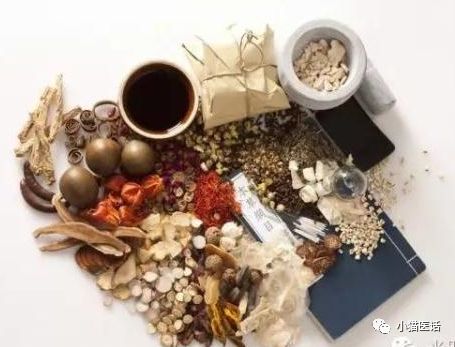
Additionally, in Zhang Xichun’s Medical Records of Traditional Chinese Medicine and Western Medicine, formulas such as Han Jiang Tang (Cold Descending Decoction), Wen Jiang Tang (Warm Descending Decoction), Mi Hong Dan (Secret Red Pill), Ren Zhi Zhen Qi Tang (Ginseng and Zhi Shi Decoction) are listed, which emphasize the use of Zhi Shi (Bitter Orange) and other calming herbs to treat vomiting, wheezing, and other diseases, and have shown significant efficacy, though not all are listed here.


Copyright Notice: We emphasize sharing, the article is sourced from the internet
Copyright belongs to the author
If there is any infringement, please contact for deletion
Images | Internet
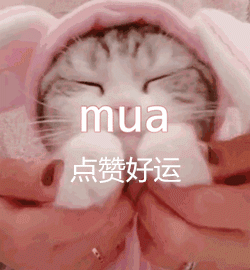
Old Man’s Ramblings Channel
WeChat Official Account:
Casual Chitchat

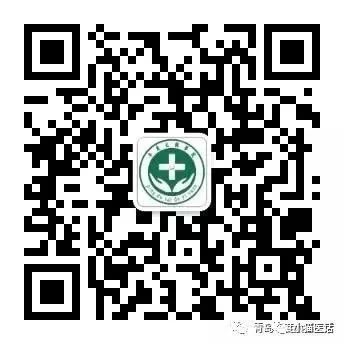
Little Cat Medical Talk Qingdao Station
WeChat Official Account:
Qingdao Pingdu Taide Hospital
Click the lower right corner “Looking”
Your little partner can read the articles you find interesting in “Looking”!

